Stravinsky: The Rake's Progress (Jurowski)
Filmed over 2 nights in August, 2010, this is the second DVD recording of 'The Rake’s Progress' from Glyndebourne which uses David Hockney and John Cox’s celebrated staging, and the London Philharmonic in the pit. The first is a transfer of a TV recording of the original production in 1975 and so it’s great to see the 7th revival from Sussex being recorded for posterity 35 years later, although I imagine a large part of the audience here did not know the work otherwise they wouldn’t have assumed it was all over just as the ‘surprise’ Epilogue burst into life.
Much more ‘traditional’ than Robert Lepage’s staging from Brussels (reviewed here), we are plunged into a fantastical semi-Hogarthian world brought to life brilliantly by Hockney’s designs. This staging has rightly become legendary, with linear and spiky lines matching Stravinsky’s music perfectly and the colours are particularly striking, no more so than during the auction scene when the majority of the staging, costumes and make up have suddenly become a very dull monochrome.
In general, the NTSC transfer picks everything up in great detail, but there is a slight issue with close ups, as any movement that accentuates the constant criss-crossing of lines between the costumes and scenery creates an off-putting visual ‘throbbing’ on screen. At times like this, it is sometimes a bit difficult to read the white subtitles. A less irritating result of the close ups is that we can see all the details of the make up. More often than not, this would make things seem contrived, but here, a false moustache, overtly garish stubble and purple beards just add to the marvellous grotesqueness of many of the characters.
The DTS sound is perfectly clear, balancing the complex, and sometimes thick, scoring with the activities on stage very nicely.
Musically there is very little to complain about.
Jurowski conducts his compatriot’s score with a huge amount of energy, yet allowing the often surprising lyrical passages time to breathe and the LPO play a blinder, although being one of the more picky of reviewer types, I thought I picked up on a few wayward clarinet phrases that stood out the more I played them back. Never mind though, a live performance this thrilling can be forgiven a few slips.
On stage, we have a fascinating mix of singers, all managing to get their tongues around Auden & Kallman’s thickly-worded libretto with varying degrees of success, yet musically, I’m not sure there’s a duff note amongst them.
Topi Lehtipuu’s Tom is a wide-eyed, lustful lad, whose loss of innocence and descent into madness is wonderfully gauged. He has a powerful, ringing tone to his voice and uses the stage well, sometimes disappearing into the almost cartoon-like furniture, becoming part of the background Hogarthian world before springing back into life traipsing around like an awkward teenager. He also (mostly) copes with a clear, English pronunciation, except perhaps when the few bits of spoken dialogue give away his Finnish upbringing. Words such as ‘an’ and ‘I’ almost invariably turn into ‘am’ and ’I’m’, but all this made me wonder whether other nationalities notice the same thing when great British singers are belting out German and French. All sounds perfectly good to me, but to a native it could be very noticeable.
Miah Persson (Anne) has far less of a problem in this respect, and although her character is rather static on stage, which is more to do with the opera itself I imagine, she gives the best performance in this role I have ever heard. The aria in the third scene is nothing short of remarkable (always a good benchmark test as far as I’m concerned) and the Anne/Tom duets, especially outside Tom’s house and in the final scene are incredibly moving. ”Every wearied body must late..” is a little too fast for my liking, but I can forgive anything when Persson’s voice is involved.
Matthew Rose (Nick Shadow) has the commanding demeanor to make his character believable, although there are times I would have preferred a darker tone to his singing, despite the fact that he freely admits in the extras that it’s a very high part for his range. Nevertheless, there’s always something evil leering behind his excellent singing and the ovation is well deserved.
As always in this work, the appearance of Baba the (bearded) Turk is something to relish, and Elena Manistina pulls out all the stops to give one of the most memorable and perfectly executed versions of the role there has been. Here, a Russian accent is actually a bonus, and you can’t help but be amazed how she rattles off the list of presents she has received from various admirers.
Extras consist of a couple of short films involving chats with Hockney, Cox, Jurowski et al. We learn quite a bit about Hockney’s initial impressions when asked to design the sets, especially as he had already created his own ‘Rake’s Progress’ when he moved to the States many years before. This time though, he felt ‘compromised’, but not necessarily in a bad way, as there isn’t much choice when you’re collaborating with several other people to create something as complex as an opera production.
Another interesting point raised, which I had never really considered even though I’ve played in this opera a few times myself, is whether we should consider the piece ‘Russian’. Obviously the music was created by one of the greatest Russian composers, yet it was written in Los Angeles for a festival in Venice, with a libretto which couldn’t be more English.
For the record, Jurowski thinks it is a particularly Russian work (Lehtipuu describes it as “fish and chips and afternoon tea for a Russian conductor”) and says he has tried to make it sound as much, although I have to be honest and say that I didn’t really notice anything myself. Perhaps because Stravinsky’s neo-Classical music has to be delivered so precisely that it leaves little if no room to ‘be’ particularly Russian in the way Rachmaninoff can.
A hugely entertaining DVD, which, despite my little asides, has surely got to take the top spot of all versions of the opera on disc.
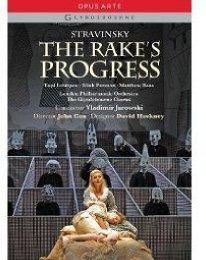
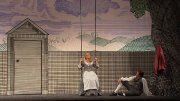
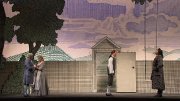
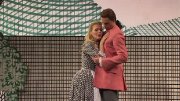
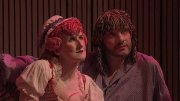
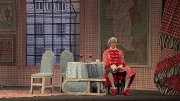
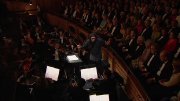
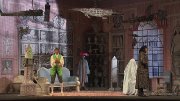
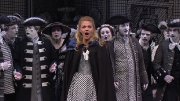
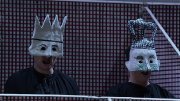
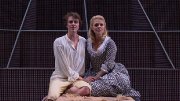
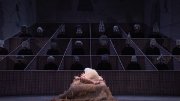
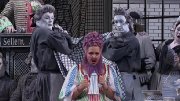
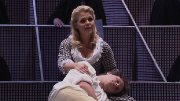
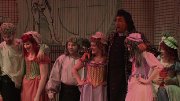
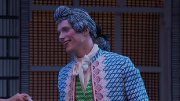
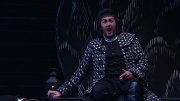
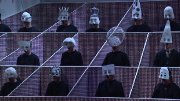
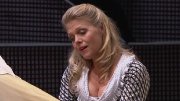
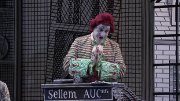
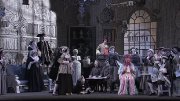
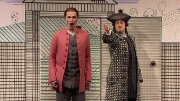









































Your Opinions and Comments
Be the first to post a comment!